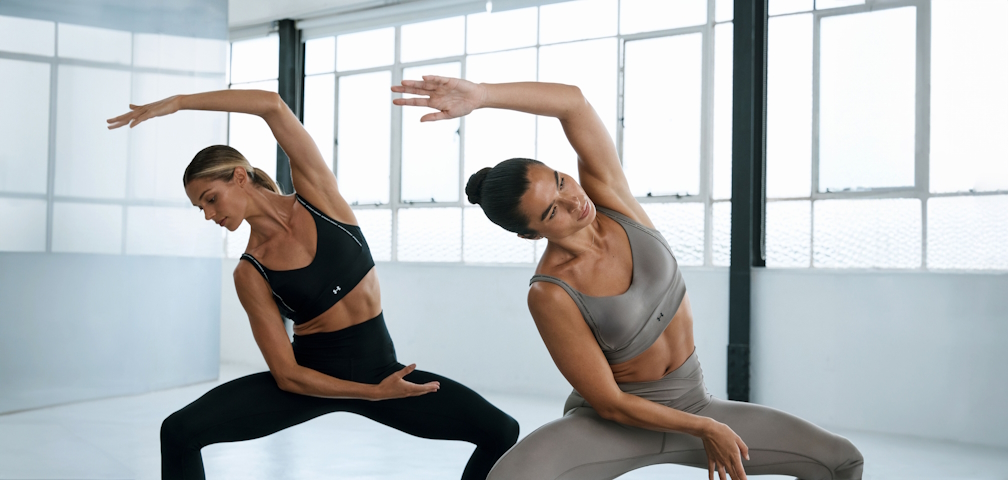Cardio and strength training boost health as you age. But don’t forget balance exercises to reduce your chance of falls
- Written by Anne Tiedemann, Professor of Physical Activity and Health, University of Sydney

We all recognise the benefits of regular aerobic or cardiovascular exercise to support our heart and lung health. Being active is also good for our social and mental health. And strength training promotes strong bones and muscles[1].
But as we age, we also need to train our balance to avoid falls.
Around one in three[2] people aged 65 and over have a fall each year.
Falls[3] are a common cause of disability and loss of independence in older age and can lead to an older person moving from living independently into living in a residential aged care facility. More than 6,000 older Australians die[4] each year from falls.
But many falls are preventable[5]. So exercise that targets balance and strength is crucial.
How much do we need to do?
International guidelines[6] recommend all older people exercise to prevent falls, even if they’ve never fallen. Prevention is far better than cure.
Other guidelines[7] recommend people aged 65 and over do “functional balance and strength training” on three or more days a week, to improve their ability to do day-to-day activities, stay independent, and prevent falls.
Since balance starts to decline[8] at around age 50, it’s even better to start training balance before the age of 65.
In order to increase our muscle strength, we need to progressively lift heavier weights. Similarly, to boost our balance, we need to practise activities that progressively challenge it. This improves our ability to stay steady in difficult situations and avoid falling.
Functional training means doing a physical activity that imitates everyday activities, such as standing up out of a chair, or stepping onto a step.
When you practise the everyday activities necessary for living independently, you improve your ability to perform them. This reduces the likelihood of falling when doing those activities, and therefore helps you maintain your independence for longer.
What exercises can you do?
The best exercises to challenge our balance system and reduce the risk of falling are performed while standing, rather than seated.
For example, you can stand with your feet close together or on one leg (if it’s safe to do so) while also performing controlled upper-body movements, such as leaning and reaching. This is a functional balance exercise and it can be made progressively more challenging as your balance improves.
Here are some exercises[9] you can practise at home:
Sit to stand
Practise standing up from a seated position ten times every hour or so. See if you can do it without using your arms for support. To increase the balance challenge, place a cushion under the feet.
Heel-raises
Rise up onto your toes and hold the position for a few seconds. Hold on to a bench or wall for support if you need to but gradually remove the support as your balance improves. To increase the balance challenge, try doing this with your eyes closed.
Heel-toe walking
Practise walking along an imaginary line, with one foot placed in front of the other. Hold on to a bench or wall for support if you need to but gradually remove the support as your balance improves.
Stepping in different directions
Practise quickly stepping forwards, sideways and backwards. Being able to move our feet quickly can help avoid a fall if you trip on something. If you are able, more challenging activities include stepping up or jumping onto a box.
Squats and lunges
Squats and lunges improve balance and leg strength. Add some hand weights to increase the challenge.
These examples and others can be found on the Safe Exercise at Home website[12].
Make it regular – and tailor it to your needs
It’s important that balance challenging exercises are performed regularly, at least three times per week. The benefits of exercise are lost if you stop doing them, so ongoing practice is important.
People of all abilities can safely undertake balance training exercise, however extra guidance and support is recommended for people who have physical limitations, are frail, or who are at a higher risk of falls.
For younger or fitter people, agility activities such as rapid stepping, dancing and running are likely to improve co-ordination and balance too.
So next time you are carrying out your exercise routine, ask yourself: what am I doing to improve my balance? Investing in balance training now can help you avoid falls, and lead to greater independence in older age.
References
- ^ strong bones and muscles (link.springer.com)
- ^ one in three (www.cec.health.nsw.gov.au)
- ^ Falls (www.who.int)
- ^ 6,000 older Australians die (www.aihw.gov.au)
- ^ are preventable (www.cochranelibrary.com)
- ^ International guidelines (www.bgs.org.uk)
- ^ guidelines (www.who.int)
- ^ decline (academic.oup.com)
- ^ exercises (www.safeexerciseathome.org.au)
- ^ Mary Rice/Shutterstock (www.shutterstock.com)
- ^ LightField Studios/Shutterstock (www.shutterstock.com)
- ^ Safe Exercise at Home website (www.safeexerciseathome.org.au)

















